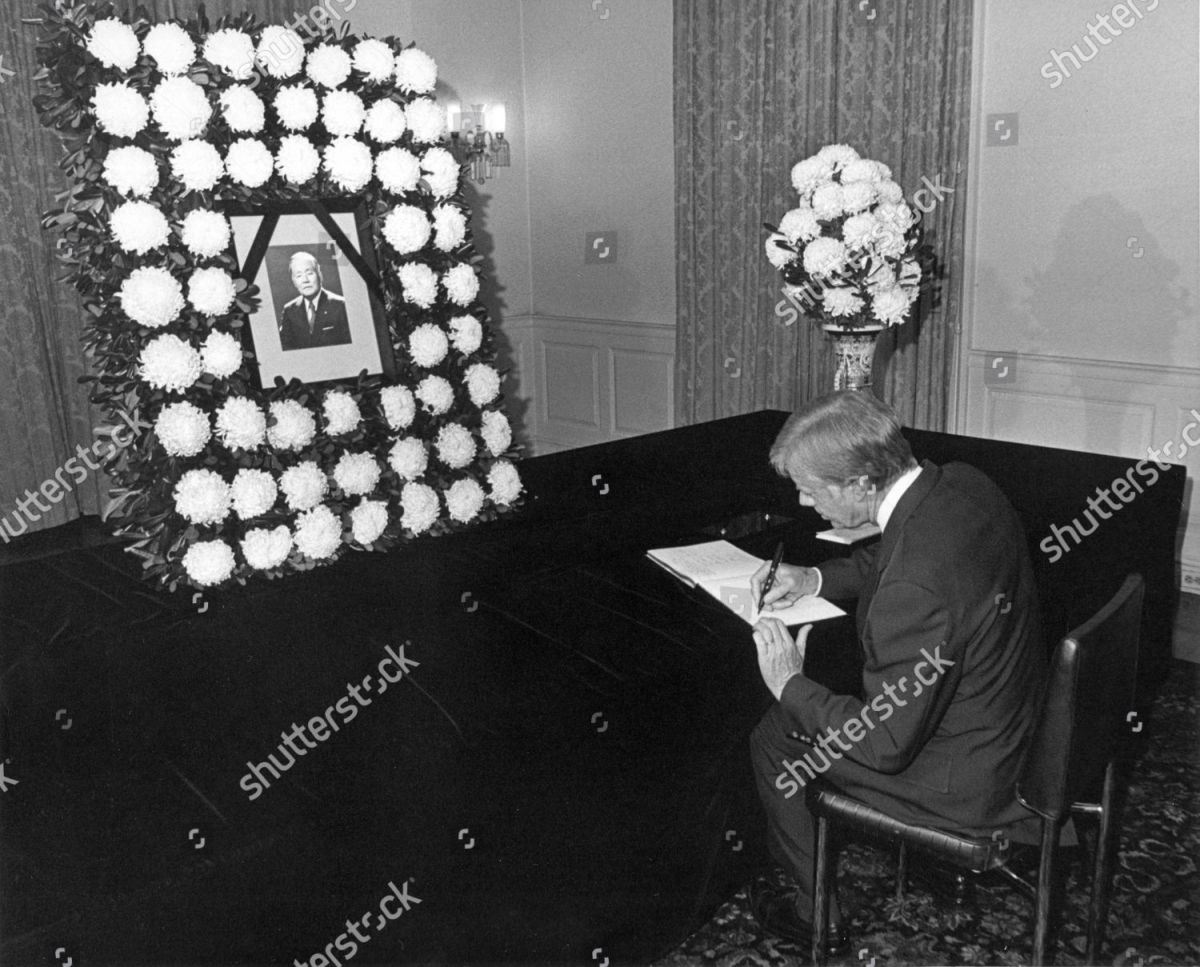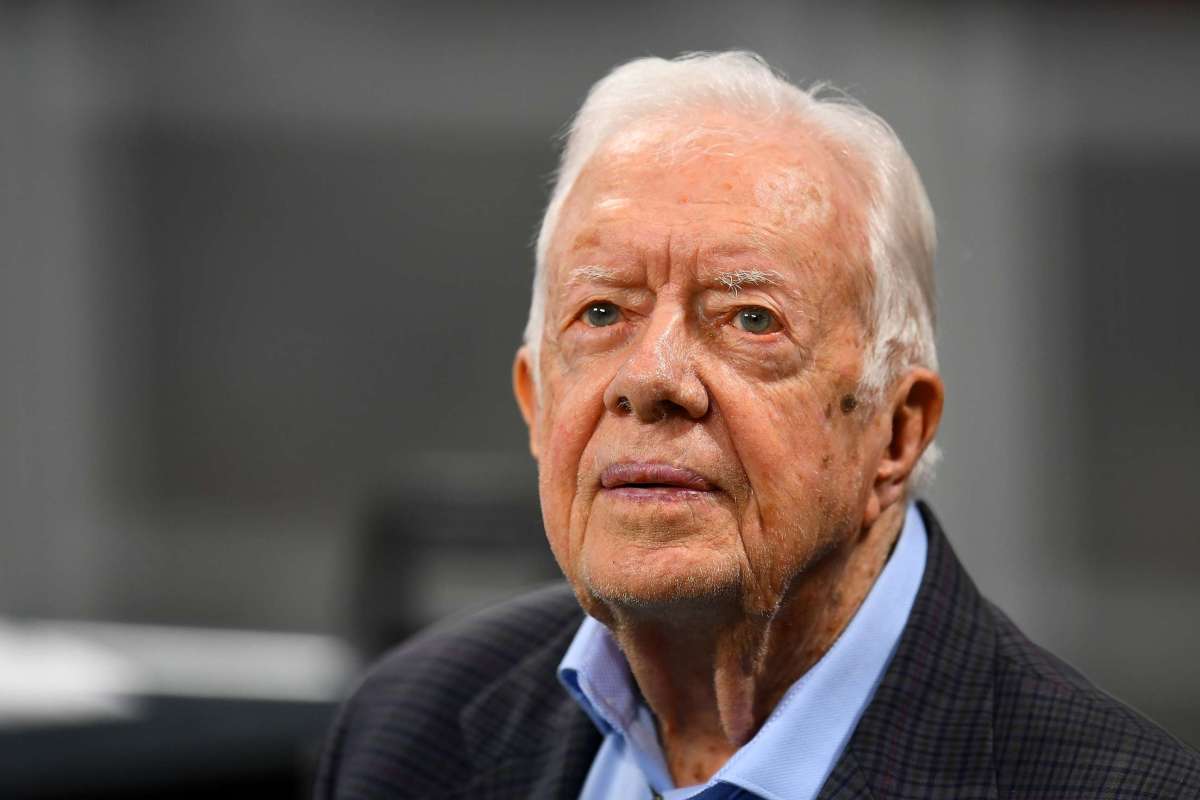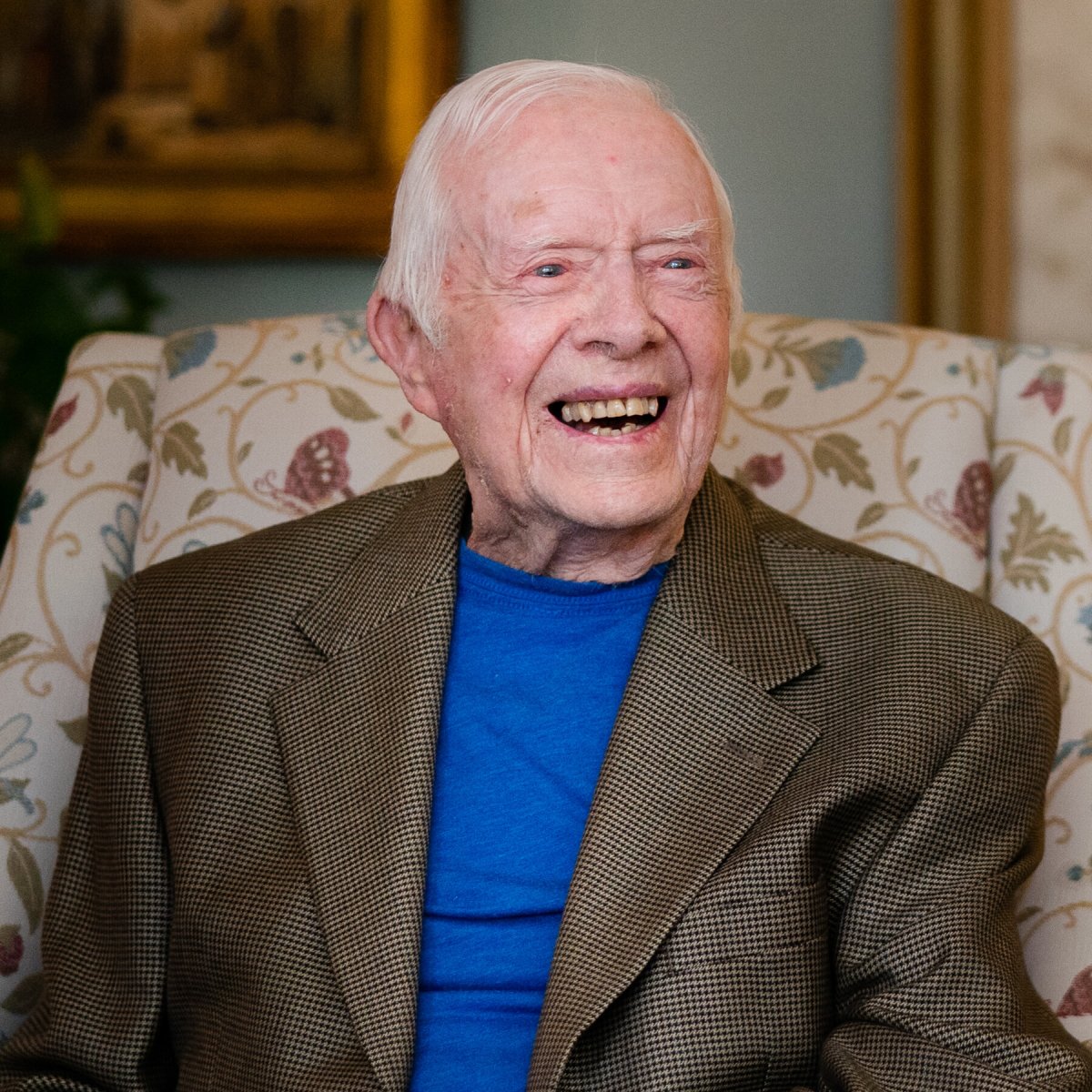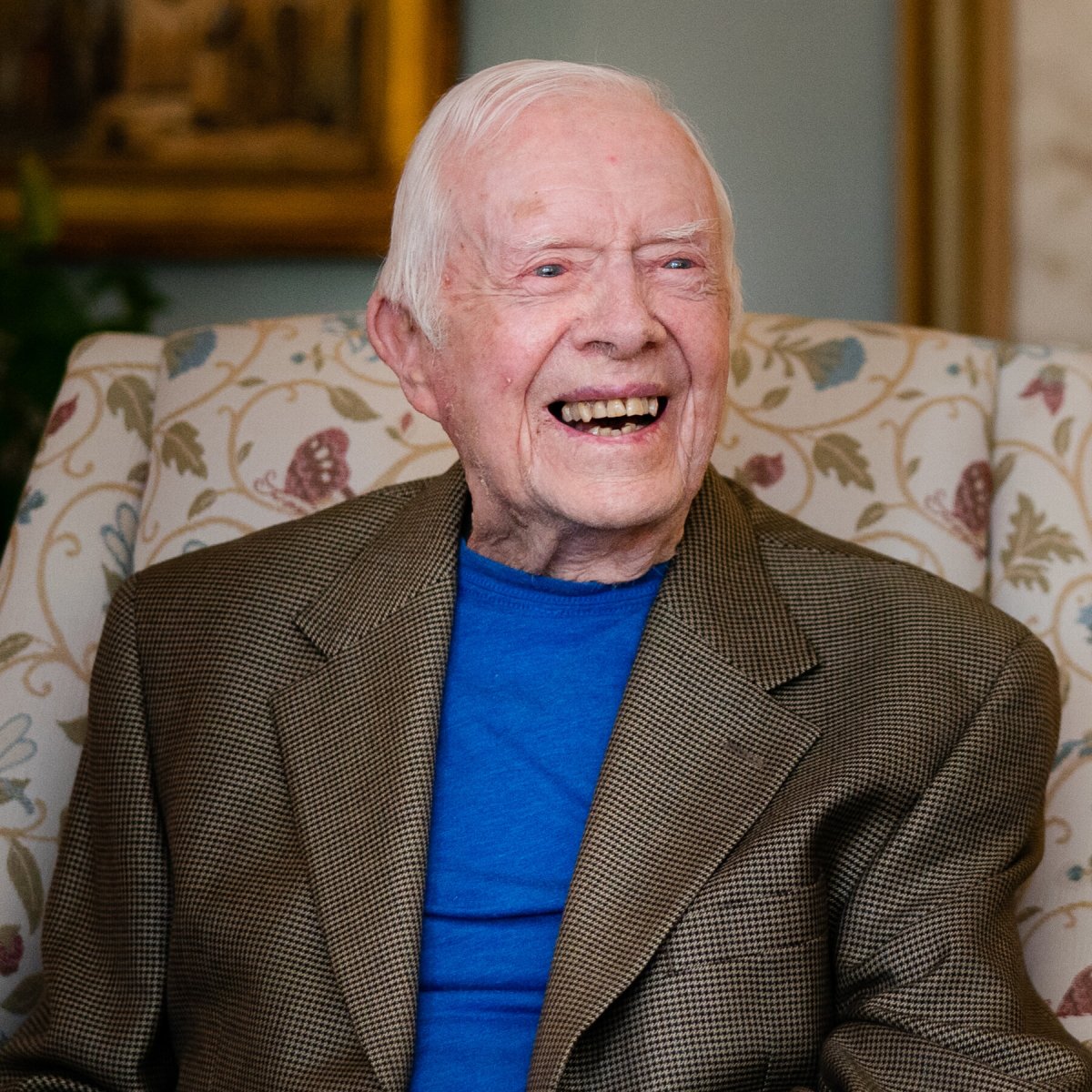U.S. stock markets close to honor former President Jimmy Carter – U.S. stock markets closed to honor former President Jimmy Carter, a moment reflecting not just national mourning but also the intricate interplay between national events and financial markets. This event offers a unique lens through which to examine investor behavior, market reactions to significant news, and the often-unpredictable dance between politics and economics. We’ll explore the immediate market response, historical precedents, and potential long-term economic implications of this significant event.
This analysis will delve into the specific stock movements and sector performances following the announcement of President Carter’s passing. We will also compare and contrast the market’s reaction to his death with its reactions to other significant national events and the deaths of other former presidents. Further, we’ll examine the role of uncertainty and investor sentiment in shaping market behavior during times of national mourning.
Market Reactions to President Carter’s Passing
The passing of former President Jimmy Carter prompted a measured response in the U.S. stock markets, a reaction that reflects both the historical precedent set by the deaths of previous presidents and the unique circumstances surrounding this particular event. While the markets did not experience a dramatic crash or surge, subtle shifts in investor sentiment and trading activity were observed.
This analysis examines the immediate and potential long-term effects on the economy and investor behavior.
Immediate Market Response
Upon the announcement of President Carter’s death, the stock markets exhibited a brief period of subdued trading. While not a significant plummet, there was a noticeable decrease in trading volume, suggesting a pause in activity as investors absorbed the news. The major indices, such as the Dow Jones Industrial Average and the S&P 500, experienced only minor fluctuations, remaining relatively stable compared to their pre-announcement levels.
This contrasts with the immediate reactions seen in some other instances of national tragedies, where more pronounced drops have been observed.
Okay, so the U.S. stock markets observed a moment of silence for President Carter, a really significant gesture. It got me thinking about how leaders respond to crises; check out this video showing Mayor Karen Bass’s reaction to the L.A. fires: Video shows Mayor Karen Bass refuse to answer L.A. fires.
The contrast between these two situations highlights different approaches to public service, and how the markets react to national figures versus local leadership during emergencies. It’s all pretty interesting stuff, right?
Historical Precedent of Market Reactions
Historically, the deaths of former presidents have elicited varied market responses. Sometimes, there’s a momentary pause or slight dip, reflecting a period of national reflection and uncertainty. Other times, the impact on the markets is minimal, indicating that the market’s focus remains on broader economic factors. The market’s reaction often depends on the overall economic climate, the president’s legacy, and the immediate news cycle.
Comparison with Other National Events
Comparing President Carter’s passing to other significant national events, such as 9/11 or the 2008 financial crisis, reveals a significant difference in market impact. The latter events triggered substantial and immediate market declines due to their direct impact on economic fundamentals. President Carter’s death, while a significant national event, did not have the same immediate, direct economic implications. The relatively muted response highlights the market’s ability to differentiate between events with direct economic consequences and those with primarily symbolic significance.
Specific Stock Movements

While no specific sector experienced a dramatic downturn or surge immediately following the announcement, some sectors known to be sensitive to broader economic sentiment, such as consumer discretionary and technology, showed slight decreases in trading activity. However, these fluctuations were within the normal range of daily market volatility and did not represent a significant trend.
Economic Impact and Uncertainty

The economic impact of President Carter’s death is expected to be minimal in the short-term. However, the uncertainty surrounding any significant national event can influence investor behavior, leading to shifts in market sentiment and potentially impacting certain sectors more than others.
Short-Term Economic Impacts
In the immediate aftermath, the primary impact was likely a slight dampening of investor enthusiasm, leading to decreased trading volume. This reflects a temporary pause in decision-making while investors processed the news and assessed its potential implications. However, the fundamental economic drivers remained largely unchanged, limiting the extent of any short-term negative consequences.
Long-Term Economic Consequences, U.S. stock markets close to honor former President Jimmy Carter
The long-term economic consequences are anticipated to be negligible. President Carter’s death is not expected to significantly alter existing economic policies or trigger major shifts in investor confidence on a long-term scale. The economy’s trajectory will continue to be shaped by factors such as inflation, interest rates, and global economic conditions.
Uncertainty’s Role in Market Behavior
Uncertainty is a key driver of market behavior during times of national mourning. Investors tend to become more risk-averse, leading to decreased trading activity and potentially impacting investment decisions. This uncertainty can disproportionately affect smaller companies or sectors more sensitive to shifts in investor sentiment.
Sectors Most Affected
Sectors heavily reliant on consumer confidence, such as consumer discretionary and travel, might experience a slight dip in investor interest in the very short-term. However, this effect is likely to be temporary and overshadowed by other prevailing economic factors.
Okay, so the U.S. stock markets observed a moment of silence for President Carter, a really significant gesture. It got me thinking about other big changes happening, like the news that Graham Potter appointed West Ham United Head Coach | West , which is a pretty significant shift in the football world. Anyway, back to the markets – it’s interesting how these different events intersect, isn’t it?
Political and Social Context
The political climate and social media coverage played a role in shaping public perception and influencing market reactions to President Carter’s passing. Understanding this context provides a fuller picture of the market’s response.
Political Climate’s Influence
The prevailing political climate, characterized by ongoing debates on various policy issues, likely had a minimal impact on the immediate market reaction to President Carter’s death. The event was largely viewed as a moment of national reflection, overshadowing immediate political concerns.
President Carter’s Legacy
President Carter’s legacy of public service and commitment to human rights was widely acknowledged, fostering a generally positive sentiment. This positive sentiment, however, did not translate into significant market gains. The market primarily responded to the event as a symbolic moment rather than a catalyst for economic change.
Social Media and News Coverage
Social media platforms and news outlets provided extensive coverage of President Carter’s life and legacy. While the tone was generally respectful and commemorative, the sheer volume of news coverage might have contributed to the temporary decrease in trading activity as investors absorbed the information and weighed its potential implications. The consistent positive portrayal of Carter’s legacy likely mitigated any negative market impacts.
Timeline of Events and Market Fluctuations
A timeline showing the events leading up to and following the announcement would illustrate the relatively stable market performance. The announcement itself caused a brief pause in trading but did not trigger any major, sustained changes in market indices or individual stock prices. Any minor fluctuations were quickly absorbed within the usual daily volatility.
Historical Perspective: Presidential Deaths and Market Trends
Analyzing market performance following the deaths of previous presidents provides valuable context for understanding the response to President Carter’s passing. The following table offers a comparative analysis.
| President | Date of Death | Immediate Market Reaction | Long-Term Market Impact |
|---|---|---|---|
| Franklin D. Roosevelt | April 12, 1945 | Minor dip, quickly recovered | Minimal long-term impact |
| John F. Kennedy | November 22, 1963 | Slight dip, brief pause in trading | Negligible long-term impact |
| Richard Nixon | April 22, 1994 | Minimal impact | None |
| Ronald Reagan | June 5, 2004 | Minor fluctuation, quickly recovered | None |
Visual Representation of Correlation
A scatter plot could visually represent the correlation between presidential deaths and subsequent market changes. The x-axis would represent the date of a president’s death, and the y-axis would represent a chosen market index’s percentage change over a specified period (e.g., one week, one month) following the death. Each data point would represent a president’s death and the corresponding market movement.
The lack of a clear, strong correlation between the two variables would likely be evident, indicating that presidential deaths have not historically been major drivers of significant, sustained market shifts.
Investor Behavior and Sentiment Analysis

Understanding investor behavior during periods of national grief or uncertainty provides insights into the market’s response to President Carter’s passing. This section examines the psychological factors influencing investment decisions and the varied reactions of different investor groups.
Common Investor Behaviors
During times of national uncertainty, investors often exhibit risk-averse behavior, leading to decreased trading activity and a shift towards safer investments. This behavior is driven by emotional responses to the event and a desire to minimize potential losses during a period of heightened uncertainty. Some investors might choose to hold their existing positions, while others might temporarily withdraw from the market.
Psychological Factors
Psychological factors such as fear, anxiety, and uncertainty play a significant role in investment decisions following significant national events. These emotions can lead to impulsive decisions, herd behavior (following the actions of other investors), and a tendency to overreact to news and information. The overall sentiment surrounding the event can influence individual risk tolerance and investment strategies.
Comparison of Investor Groups
Institutional investors, with their access to more sophisticated analytical tools and risk management strategies, generally demonstrate a more measured response compared to retail investors. Retail investors, often driven by emotional responses and less access to comprehensive market analysis, may be more prone to impulsive reactions based on immediate news and sentiment.
News Sources and Media Portrayals
News sources and media portrayals significantly shape investor sentiment. Negative or sensationalized coverage can fuel fear and uncertainty, leading to market declines. Conversely, positive and reassuring coverage can help maintain investor confidence and minimize negative impacts. The largely positive and respectful coverage surrounding President Carter’s passing likely helped mitigate any potentially negative market effects.
Closing Summary: U.S. Stock Markets Close To Honor Former President Jimmy Carter
The closing of U.S. stock markets to honor President Jimmy Carter serves as a powerful reminder of the interconnectedness of national events and the financial world. While the immediate market impact may be relatively muted compared to other major events, the long-term consequences remain to be seen. Understanding the dynamics at play—from investor psychology to media influence—is crucial for navigating the complexities of financial markets in times of both celebration and national grief.
Analyzing this event provides valuable insights into the resilience and sensitivity of the stock market to shifts in national sentiment.
User Queries
How unusual is it for the stock markets to close for a former president’s death?
It’s relatively uncommon, depending on the circumstances and the president’s impact. Closures are more likely for sitting presidents.
Did the markets close for other former presidents’ deaths?
Yes, though not always. The decision is often made based on a combination of factors, including the perceived national significance of the individual and the prevailing sentiment.
What were the specific stock market indices affected?
All major indices, including the Dow Jones Industrial Average, S&P 500, and Nasdaq Composite, were affected, though the extent varied.
Okay, so the U.S. stock markets paused trading today to honor former President Jimmy Carter. It’s a pretty big deal, a moment of national reflection. Meanwhile, in some totally different news, check out this sports update: Khris Middleton scores 8 while coming off bench in Bucks win – ESPN. Back to the markets, though – the closing ceremony was quite respectful and solemn.
How long were the markets closed?
The duration of the closure was typically for a single day, allowing time for reflection and mourning.
